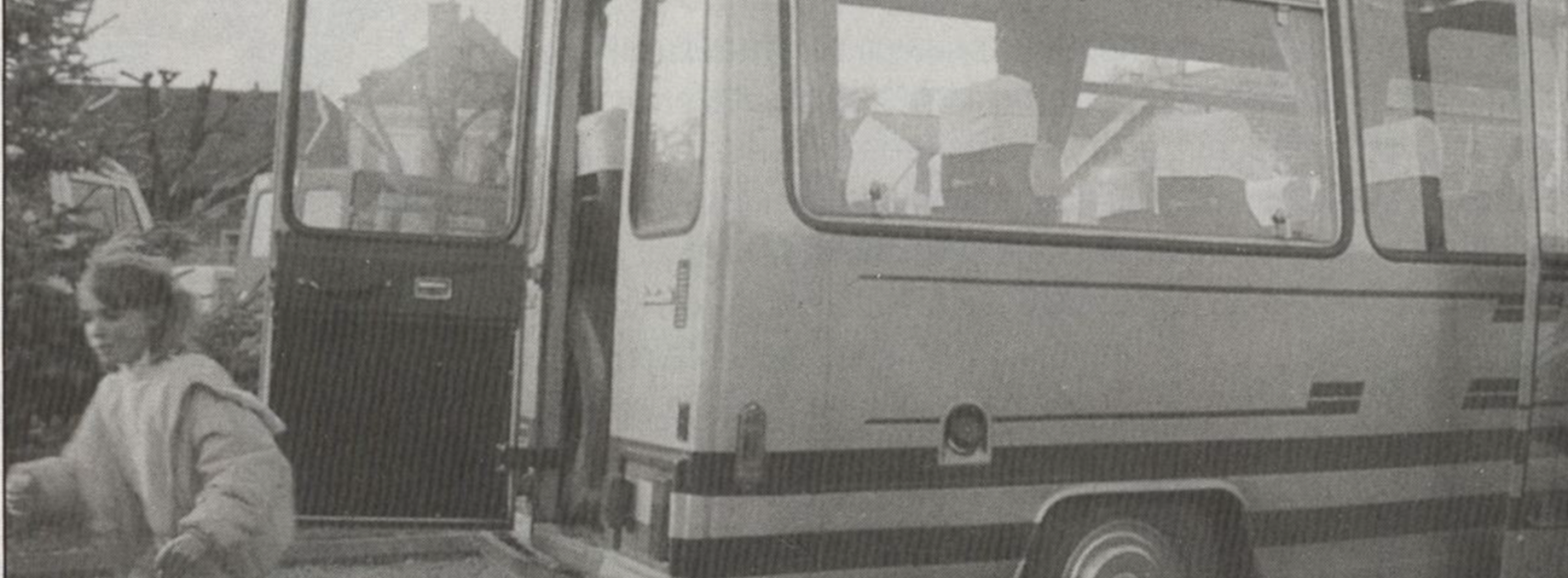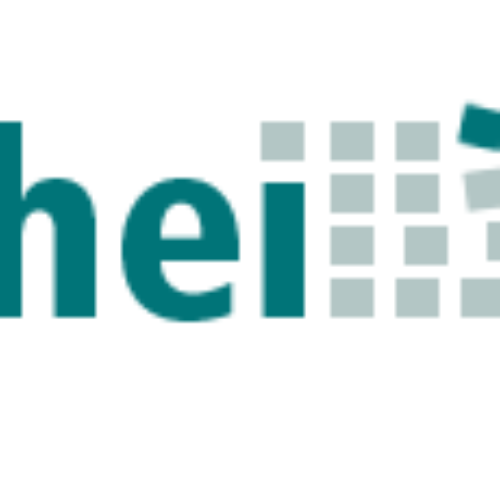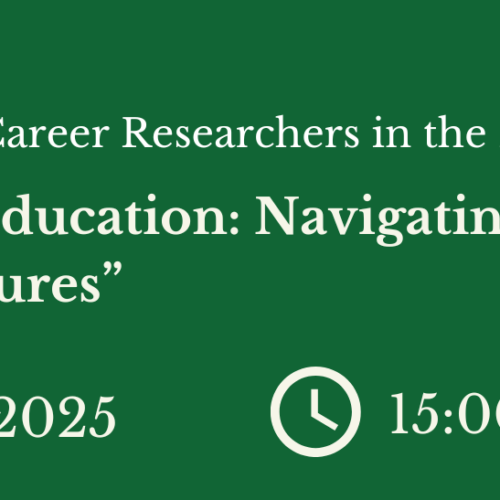CFP: Training programs and geographical mobilities. Deadline: June 1, 2018
Call for Papers
Training programs and geographical mobilities: models, tools and strategies France and its colonial Empire, 18th – 21st centuries
Bordeaux, 13-14 June 2019
Organising committee
Marianne BLANCHARD, ESPE Midi-Pyrénées /CERTOP Clémence CARDON-QUINT, ESPE d’Aquitaine – université de Bordeaux/CEMMC Leïla FROUILLOU, Paris Nanterre, CRESPPA-GTM Solenn HUITRIC, Université de Lausanne Emmanuelle PICARD, ENS de Lyon
Contact: formation-mobil@sciences-conf.org
The development of French education can be viewed as the progressive conquest of a territory, at the crossroad between a state-led policy and the combined or competing initiatives of non-state actors – city councils, congregations, companies, etc. -, in conjunction with the sociological and economic changes of the last three centuries. At the beginning of the 21st century, the territorial grid of universities and schools would then be the result of the logical geographical deployment of teaching offer as close as possible to the targeted population. If this proximity is indeed a decisive element, it is nevertheless not the only organizational principle to be considered. In particular, one must not overlook the role played by different geographical mobilities in defining training programs, that is to say, as mobilities which are desired and organized by the State to broaden the recruitment for a specific course so as to ensure the quality of the future ruling elite, or as individual mobilities that defeat the projects of a rational occupation of the territory.
This conference aims at shedding light on the many ways in which mobility participates, alongside the deployment of a geographically organized offer, in the social and territorial structuration of the educational system and, more generally, of a society in which Paris competes with the “province”, big cities with medium-sized ones, and urban areas with rural ones. The purpose is therefore to question the specific logic that undermines, on the one hand, the way educational offer is deployed, and, on the other hand, the organization of individual and collective mobilities. We can also wonder how both are linked and whether they are complementary or competing.
The starting point of our study will be the 18th century. It does not mean that education-based mobilities did not exist before, but the Age of Enlightenment is characterized by an intense reflection on the organization of a national education system and, at the same time, by the creation of public teaching institutions required by the expansion of modern State (the École royale des Ponts et Chaussées in 1747, the École des Mines of Paris in 1783, etc.). We can trace back to this century the beginning of this tension between the rational deployment of an educational offer and individual logics of mobility, that this conference aims at further questioning. Our ambition is to follow this path up to today, so as to identify, in the long run, continuities and breaking points, and therefore to sketch a periodisation enabling us to renew our understanding of how educational spaces are structured.
To that end, the conference will cover, a priori, all teaching institutions – should it offer an elementary, secondary, higher or vocational teaching. It will consider public schooling as well as private institutions. We welcome papers dealing with mobilities on different scales within the French space (inside a city, as well as within the colonial Empire), as well as on movements of French students abroad. However, the arrival of foreign students to France – a form of mobility that constitues an extremely rich field of research – will not be included in our study, unless it sheds a direct light on our primary question.
Leading up to the present time, this conference wants to encourage a dialogue between history and social sciences that study mobilities, their motivation and their impact on our contemporary society. Geographers, sociologists, political scientists, and so on, are thus welcome to submit papers, alongside historians: through the hypothesis formulated and the originality of the empirical material collected, we are looking to enrich our collective reflection on former or recent transformations that have affected the French social and political model. However, while choosing between papers on the most recent period, priority will not be given by the organizers to those that sharpen the analysis of already well documented phenomena – for example, the avoidance of some collèges by the middle and upper class – but rather to those that highlight dynamics that are often neglected by researchers up to now. By focusing on the French situation, we wish to create favorable conditions for a real work of periodization, knowing that the phenomena studied are closely dependent on the specificities of a certain State, territory or population. Yet, presentations on other national spaces might find their place in the conference if they actively contribute to the formulation of hypothesis relevant to the French situation.
Further information on the call for papers available here. URL: https://formation-mobil.sciencesconf.org/
Appel à communication
Parcours de formation et mobilités géographiques : modèles, instruments, stratégies France et empire colonial français (XVIIIe-XXIe siècles)
Bordeaux, les 13 et 14 juin 2019
Comité d’organisation
Marianne BLANCHARD, ESPE Midi-Pyrénées /CERTOP Clémence CARDON-QUINT, ESPE d’Aquitaine – université de Bordeaux/CEMMC Leïla FROUILLOU, Paris Nanterre, CRESPPA-GTM Solenn HUITRIC, Université de Lausanne Emmanuelle PICARD, ENS de Lyon
Contact: formation-mobil@sciences-conf.org
Le développement de l’enseignement en France pourrait se lire comme la conquête progressive d’un territoire, à l’articulation d’une politique orchestrée par l’État, et des initiatives conjointes ou concurrentes d’acteurs non étatiques – les villes, les congrégations, les entreprises etc -, en lien avec les transformations socio-économiques qui ont marqué les trois derniers siècles. Le maillage territorial de la carte scolaire et universitaire, en ce début du XXIe siècle, résulterait alors du déploiement logique de l’offre de formation au plus près des populations qu’elle doit accueillir. Si cette proximité apparait bien comme un élément déterminant, elle n’est cependant pas le seul principe organisationnel à l’œuvre. Elle ne doit pas, en particulier, occulter le rôle structurant joué par les mobilités géographiques dans les parcours de formation : mobilités voulues et orchestrées entre autres par l’État, lorsqu’il s’agit d’élargir au maximum le recrutement d’une formation pour assurer la qualité d’une future élite, mobilités individuelles venant déjouer les projets d’une occupation « rationnelle » du territoire.
Ce colloque souhaite ainsi mettre en lumière la façon dont les mobilités participent, conjointement avec le déploiement d’une offre géographiquement située, à la structuration sociale et territoriale du système d’enseignement et plus largement d’une société où s’opposent Paris et la province, grandes villes et villes moyennes, zones urbaines et zones rurales. Il s’agit donc d’interroger les logiques spécifiques qui sous-tendent, d’une part, le déploiement de l’offre, d’autre part, l’organisation des mobilités individuelles et collectives, ainsi que leurs modes d’articulation et leurs relations de complémentarité et de concurrence.
Cette réflexion prendra pour point de départ le XVIIIe siècle. Non que les mobilités liées à la formation n’aient existé dans les périodes précédentes (voir l’atelier dédié des journées de Blois de 2016), mais le siècle des Lumières est marqué à la fois par un intense travail de réflexion sur l’organisation d’une éducation nationale et par la création des institutions publiques d’enseignement requises par l’expansion de l’État moderne (l’école royale des Ponts et chaussées en 1747, l’école des Mines de Paris en 1783, etc.). On peut y déceler l’amorce de cette tension entre le déploiement rationnel d’une offre de formation et les logiques individuelles des mobilités, que ce colloque veut interroger plus en détail. Notre ambition est de suivre ce fil jusqu’à nos jours afin d’identifier sur, le long terme, continuités et ruptures, et d’esquisser ainsi une périodisation susceptible de renouveler notre compréhension des logiques de structuration des espaces éducatifs.
Pour ce faire, le colloque n’exclura, a priori, aucune institution d’enseignement – qu’elle dispense une formation de type élémentaire, secondaire, supérieure, professionnelle, sans oublier les établissements dédiés à la formation des enseignants. Il s’intéressera aussi bien à l’enseignement public qu’aux institutions privées. Les contributions pourront porter sur des mobilités d’amplitude diverse au sein de l’espace français (à l’intérieur d’une ville, comme au sein de l’Empire colonial), ainsi que sur les déplacements d’élèves ou d’étudiants français à l’étranger. La venue d’étudiants ou d’élèves étrangers en France – mobilité qui constitue en elle-même un champ d’étude extrêmement riche – ne sera, en revanche, pas incluse dans la réflexion, à moins qu’elle n’éclaire directement l’objet du colloque.
Débouchant sur le temps présent, ce colloque fait le pari du dialogue entre l’histoire et les diverses sciences sociales qui étudient ces mobilités, leurs motivations et leurs effets dans la société contemporaine. Les contributions des géographes, sociologues, politistes, etc.
seront donc les bienvenues, aux côtés de celle des historiens : les hypothèses formulées, comme l’originalité du matériau empirique mobilisé, pourront nourrir la réflexion collective sur les transformations, anciennes ou récentes, qui ont affecté le modèle social et politique français. Dans la sélection des contributions relatives à la période la plus récente, on ne donnera pas la priorité à celles qui affinent l’analyse de phénomènes déjà documentés par la recherche – par exemple, l’évitement de certains collèges par les classes moyennes et supérieures – mais plutôt à celles qui mettent en lumière des dynamiques jusque-là négligées par les chercheurs.
En ciblant la réflexion sur le cas français, on souhaite créer les conditions propices à un vrai travail de périodisation, s’agissant de phénomènes qui dépendent étroitement des spécificités d’un État, d’un territoire et d’une population. Des éclairages sur d’autres espaces nationaux, dans la mesure où ils contribuent à la formulation d’hypothèses éclairantes pour le cas français, pourront cependant trouver leur place dans le colloque.
Plus d’information disponibles ici. URL: https://formation-mobil.sciencesconf.org/
About author
You might also like
Appel à articles pour la Revue d’histoire de l’enfance «irrégulière»
Appel à articles pour la Revue d’histoire de l’enfance «irrégulière» qui consacre son numéro 19 au thème suivant : «Abandon d’enfants et parents abandonneurs (XIXe-XXIe siècle)». Plus d’infos sur l’appel à contribuition ici. Plus
History of Education and Covid-19 Interview
History of Education and Covid-19: The crisis of the school in transcribed interviews with African (G. Akanbi, L. Chisholm), American (C. Boto, A. Cerecedo, M. Cunha, A. Bennett-Kinne, H. Rocha,
CALL FOR SUBMISSIONS AND COLLABORATION
The Education & Pandemics Archive is a public history initiative for historians of education worldwide. Here you can find our info sheet in 5 different languages, which gives a brief




